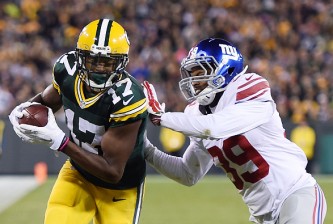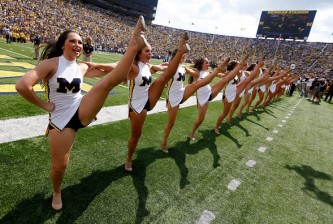Time for my real-time review of Real Sports tonight.
This is about the members of an Uruguayan rugby team that survived a horrific plane crash in the Chilean Andes Mountains in 1972. How they survived is a totally amazing story. The Old Christians rugby club was flying from Uruguay to Chile for a match. Some 45 people were on a chartered flight and the plane was flying over the peak of the Andes. Sixteen people died in the crash including several women.
After the crash, the survivors found a transistor radio and a camera. The camera would document the story of their survival. The crash occurred in the worst part of the Andes winter. And 10 days into their ordeal, the men found out on the radio that the search had been called off. All were presumed dead. So the survivors had to make the ultimate decision. They decided to eat the dead to stay alive. There was revulsion, but one member said a month later, he did not think about it. They also had to eat body parts like the liver and brain.
The team had to also endure an avalanche that killed eight more people. Only one person was not buried and he worked to free his teammates.
Two months into the ordeal, one man decided to go on foot to get help. He found help and sixteen men who survived the crash were rescued.
All but one live in the same town. Every year, December 22 the day of their rescue, the 16 survivors reunite for a gathering. And many of them go back to the site during the summer to remember those who have died.
They have all gone on to maintain productive lives, as a doctor, as a President of the Old Christian club and even a Presidential candidate. Just recently, the 16 members of the team went to Chile to finish the match they were supposed to play. It’s a story of perseverance, brotherhood and getting a second chance on life. Segment grade – A+
Segment #2 – The Professional
Tonight’s segment on Donovan McNabb (reported by CBS’ James Brown) has interesting timing. The Eagles are 0-2 and McNabb has endured lots of criticism right from the beginning of his career when he was booed by Eagles fans as the first pick of the team in the NFL draft. Even though he has been a model citizen in the community, he gets criticized from fans, the black community and one particular teammate (T.O.), but he continues to persevere.
His parents moved their family from the tough streets of Chicago to a predominately all-white suburb. But it was to prepare Donovan to be tough. He played QB in high school and at Syracuse University. McNabb says he knows that black quarterbacks have to do more than white quarterbacks to be accepted. Brown asked about Peyton Manning and white quarterbacks who endure criticism. McNabb says they’re good quarterbacks and good players, but he has to do more than them to be accepted. That’s because the perception that black quarterbacks aren’t smart enough to be in the position.
Of course, the Rush Limbaugh statements on ESPN about the media rooting for a black quarterback to do well did not help. McNabb did not respond basically pushing the statements aside. But the following season, McNabb led the Eagles to the Super Bowl.
However, former teammate Terrell Owens criticized Donovan for wearing down in the stretch of the game, and a local President of the NAACP attacked him for being a traditional pocket passer and pushing back the black athlete. McNabb admits the criticism bothered him, but again, did not respond to it. JB says Donovan has basically learned to live with the criticism and he plays on. Segment grade – B
Our third segment is on runner Lopez Lomong who has endured a journey of his own. This is done by Mary Carillo.
At the age of six, he was taken from his home of Sudan, a war ravaged African country and imprisoned by rebel soldiers. Lomong was at a neighborhood church when the rebels took all the children to a prison hundreds of miles away. One night, Lomong and several of his friends found a hole in the fence surrounding the camp and ran. They thought they were running to their village, but instead, they ran over the border into Kenya where they were arrested and put into a refugee camp. Lomong spent 10 years there (and running at the camp as well) and would have spent the rest of his life there if it weren’t for US Catholic Charities which sent he and several of his friends to the United States.
Lomong was adopted by a loving family in upstate New York. He wanted to run once he got there. His new family sent him to a high school running coach who taught him how to race. Lomong turned into a polished runner. He had trouble adjusting at first, but he became comfortable with them calling them his mom and dad. Lopez did eventually find out his mother and father were still alive in Sudan. So he talked to them on the phone for the first time since he was six.
Lomong graduated from high school and went to Northern Arizona University where he became the National Champion in the 1,500 meters.
Last month, Real Sports arranged for Lopez to go to Sudan for the first time. He took a plane and he was welcomed warmly by several boys including two of his new-found brothers. Finally, he saw his mother after 17 long years. He was speechless. After going to his mother’s apartment, the emotions flowed as mother and son got to finally spend some time together.
He showed his mother one of his races. But he also got to see the problems of his country. His father later showed up for another reunion.
Lamong later returned to the US so he can train for the1,500 meters and represent the USA in the 2008 Olympics. A truly amazing story. Segment grade – A+
The final segment is an update on a 2003 story on the number of wrestlers who have died before the age of 45. CBS News’ Armen Keteyan did the original story and does it here as well. Buff Bagwell who has endured pain was a focus of the original story. With Chris Benoit’s death earlier this year, the focus on the deaths in wrestling is back. Back in 2003, 60 wrestlers under the age of 45 had died in a six year period. In the last four years, more than a dozen pro wrestlers have died. And many in the life have called wrestling “The Sickness”. To survive, many wrestlers have resorted to alcohol and drugs. Depression has caused many to turn to pills.
The life of wrestling while glamorous to some, has no job security, no medical benefits and many say the sport has turned a blind eye to the problems. Observers say the two competing companies in the 1980’s, the WWF and WCW contributed to the deaths of many men because of the lifestyle of booze, drugs, steroids, blows to the head and pills.
In fairness, the WWE instituted a wellness program and eleven wrestlers were recently suspended for violating that policy. Bagwell was asked why can’t he walk away from the sport and his reply was that it’s all he knows. Original grade – B, grade still holds.
Final Comment
Gumbel did not have time to make one and the show was ended. Overall grade – A minus. Once again, a stellar show.






















